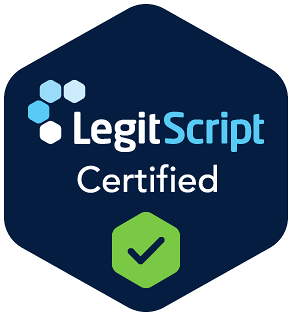Ozempic has quickly gone from a diabetes medication to a household name, splashed across TikTok feeds and celebrity headlines. You’ve probably heard it hailed as a “miracle” weight loss drug—but what if there’s more to it than just shrinking waistlines?
Here at Hygea, we’re always tuned in to innovations in recovery. And lately, there’s growing buzz around Ozempic’s unexpected link to addiction treatment. Could a drug meant for blood sugar and appetite control actually help curb substance cravings? The short answer: maybe.
Let’s break it down—without getting too “science textbook”—and explore what this could mean for people on a recovery journey.
First, What Is Ozempic?
Ozempic (generic name: semaglutide) is part of a class of drugs called GLP-1 receptor agonists. These medications mimic a natural hormone that helps regulate blood sugar, slows digestion, and makes you feel full. Originally designed to treat type 2 diabetes, it’s now prescribed off-label for weight loss—and it’s working.
But here’s where it gets interesting: GLP-1 receptors don’t just live in the gut. They’re also found in the brain, including areas that regulate reward, pleasure, and addiction.
What Does Ozempic Have to Do With Addiction?
Recent studies are showing that Ozempic may reduce cravings—not just for food, but for alcohol and even drugs. This isn’t just hype. Here’s what the data is starting to show:
-
A study from University College Dublin found that people taking semaglutide significantly cut back on alcohol—going from an average of 23.2 drinks per week to just 7.8 over four months. Researchers believe it reduced their urge to drink by affecting the brain’s reward centers (source).
-
Another study from Loyola University Chicago discovered that individuals with opioid use disorder who were prescribed GLP-1 agonists had a 40% lower overdose rate, while those with alcohol use disorder had a 50% reduction in intoxication episodes (source).
Researchers think Ozempic may help by dampening dopamine activity in the brain—the same system that lights up during substance use. If that sounds like a good thing, it is. Less dopamine response means less of the high—and, potentially, less craving.
But Is It Addictive Itself?
This is a fair and important question, especially for people in recovery. Chemically, Ozempic is not addictive. It doesn’t flood the brain with feel-good chemicals like opioids or stimulants. But some people do report becoming emotionally attached to the effects—especially weight loss, appetite suppression, or even the identity shift that comes with physical change.
This isn’t the same as substance addiction, but it’s something to watch, especially for those with histories of disordered eating, body image struggles, or impulse control.
A Real Conversation: Ozempic in Recovery
For someone healing from addiction, the idea of a medication that might quiet cravings is understandably appealing. But here’s the other side:
-
Some users report depression, anxiety, or low motivation on Ozempic. The FDA has received reports of suicidal thoughts among people on semaglutide medications (source).
-
Others have seen improved mood and well-being, even in people with schizophrenia or bipolar disorder, according to research presented at the European Congress on Obesity (source).
So, what gives?
This is why it’s essential that medications like Ozempic are used with care, medical supervision, and support—especially if you’re in recovery. It may be helpful for some, harmful for others. No one-size-fits-all answers here.
What We Believe at Hygea
At Hygea, we know that true recovery is about wholeness—not just managing symptoms, but addressing the root causes, rebuilding self-worth, and finding meaning. If Ozempic or any medication plays a helpful role, that’s something to explore together.
But we also know this: There’s no shortcut to healing. Medications can be tools, but the real work happens in therapy, in community, in self-discovery, and in showing up—day after day.
Final Thoughts: Curiosity Over Judgment
If you’re someone who’s wondered about trying Ozempic—whether to lose weight, reduce cravings, or improve health—start with curiosity. Talk to your care team. Ask questions. Be honest about your history and your goals.
And remember, you don’t have to figure it all out alone.
Struggling with cravings, addiction, or mental health?
Hygea Healthcare is here to support your journey—with evidence-based care, real human connection, and a team that believes recovery is possible for everyone.
📞 Call us today or visit hygea.health to learn more.




